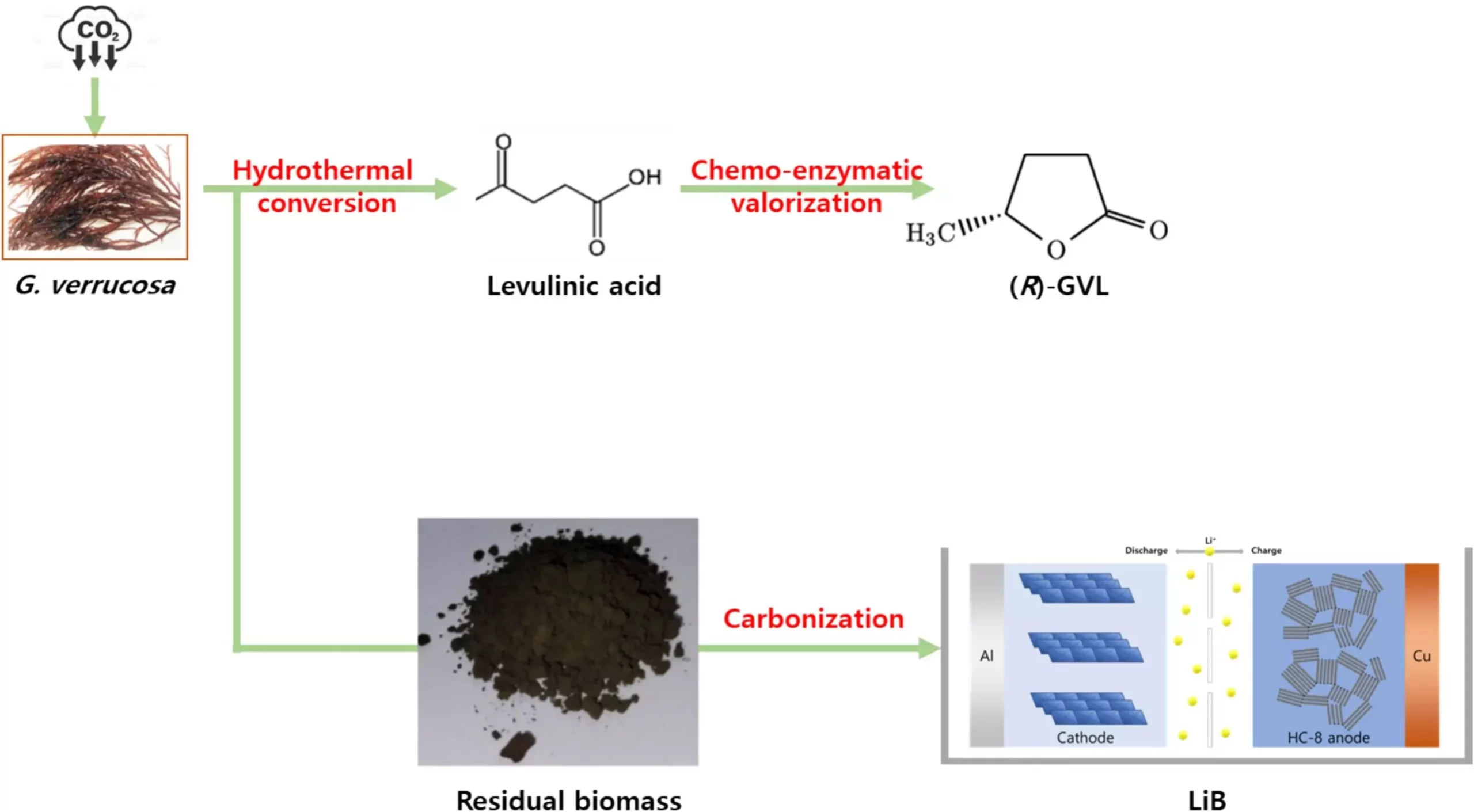Recent advancements in bioenergy technology have highlighted the importance of marine resources, particularly seaweeds, in the pursuit of sustainable energy solutions. One remarkable study published in the Chemical Engineering Journal reveals a groundbreaking method to convert common culinary seaweeds such as Kkosiraegi into valuable bio-aviation fuels and energy storage materials. Led by Dr. Kyoungseon Min and his team at the Gwangju Clean Energy Research Center, with valuable input from Kangwon National University, this research signifies a leap forward in renewable energy and materials science.
Seaweed has garnered attention in recent years due to its potential as a raw material for bio-aviation fuels, addressing the urgent need for eco-friendly alternatives to conventional fossil fuel sources. The research proposes using seaweed to create precursors for enantioselective bio-aviation fuels, specifically (R)-gamma-valerolactone (GVL). What makes this pursuit particularly compelling is that bio-aviation fuels derived from seaweeds can reduce greenhouse gas emissions by up to 82%, creating a formidable rationale for its integration into the aviation fuel market. Experts estimate that by 2070, bio-aviation fuels could comprise 35% of the total aviation fuel market, a crucial stride toward a more sustainable future.
Despite the benefits, the existing production methods for bio-aviation fuels, such as the widely acknowledged sugar-to-jet technology, face considerable challenges. This method involves converting biomass into fermentable sugars through a complicated pre-treatment process, followed by microbial fermentation. Unfortunately, these processes are not only labor-intensive but also expensive due to high-pressure hydrogen requirements. Furthermore, the efficiency is disappointing, yielding only about 15% of viable fuel precursors from the fermentable sugars. This illustrates the pressing need for an alternative that enhances efficiency and reduces costs in biofuel production.
In response to these issues, Dr. Min’s research team innovated a novel levulinic acid-based process that employs a one-step enzymatic reaction. Unlike microbial fermentation, this method starts with an acid treatment to convert Kkosiraegi into levulinic acid. Subsequent enzymatic reactions facilitate the transformation of this intermediate directly into (R)-GVL. This innovative approach increases the yield of the precursor by a staggering tenfold compared to traditional methods, promising a more efficient pathway to biofuel production.
A unique aspect of the research is the focus on enantioselective production—the generation of a specific optical isomer of GVL. While conventional methods typically generate a mixture of (R)- and (S)-forms, achieving a high purity of (R)-GVL is essential for its application in fields like biopharmaceuticals. The engineered enzymes developed by Dr. Min’s team exhibit an astonishing 99.999% accuracy in converting levulinic acid into (R)-GVL. This precision paves the way for advancements in hypertension medications and other biopharmaceuticals, marking a significant milestone in the biorefinery sector.
An added benefit of this research is the strategic utilization of residual biomass generated during the production of levulinic acid. The leftover Kkosiraegi residue can be transformed into “hard carbon,” an anode material for lithium-ion batteries through a carbonization process. By exploring this dual-use capability, the research emphasizes a holistic approach to sustainability—maximizing value extraction from all components of the biomass and potentially reducing waste in energy storage technology.
Dr. Kyoungseon Min aptly notes Korea’s geographical advantage, being surrounded by rich seaweed resources, which positions it favorably for sustainable bioenergy initiatives. By leveraging this research, we are not only stepping into a future where seaweed can yield materials applicable across diverse industrial sectors, but we are also setting the stage for significant advancements in energy storage solutions. This innovative technology not only promises to reshape the biofuel landscape but also exemplifies how interdisciplinary approaches can harness natural resources for a sustainable and eco-friendly future. As we continue to confront climate change and resource scarcity, innovations like these underline the potential of marine biomass as a cornerstone of renewable energy strategies and sustainable material production.


Leave a Reply